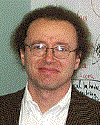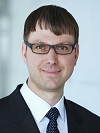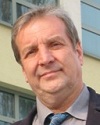

ESSA 2013: 9th Conference of the European Social Simulation Association
Warsaw School of Economics, Warsaw, Poland, September 16-20, 2013
ESSA2013 Post-conference Call for Papers
Following ESSA2013 Conference, Central European Journal of Economic Modelling and Econometrics invites all researchers and scholars interested in applications and theoretical foundations of simulation modeling in economics to submit their research papers to a dedicated issue of the journal.
The issue is guest edited by Flaminio Squazzoni and Bogumił Kamiński. All questions regarding the publishing process should be directed to Bogumił Kamiński.
Submitted contributions must contain high quality, original, unpublished work, which is not being submitted for publication elsewhere. In particular, substantially extended versions of economic papers published in ESSA2013 Conference proceedings “Advances in Social Simulation, Proceedings of the 9th Conference of the European Social Simulation Association” are encouraged to be submitted by conference participants.
Manuscripts should be submitted via CEJEME online system which can be accessed on http://www.cejeme.pl/. Authors should follow submission guidelines specified there. It is required that submission is accompanied by a Cover Letter indicating that it refers to ESSA2013 Call for Papers.
Key dates:
Submission deadline: January 30, 2014
Tentative notification of acceptance: April 2014
Tentative deadline for final submission: June 2014
Expected publication date: second half of 2014
Videos of keynote lectures
You can watch videos of keynote lectures presented during ESSA2013 on YouTube
ESSA 2013 highlights
The European Social Simulation Association and Warsaw School of Economics, Division of Decision Analysis and Support hosted researchers and scholars interested in applications and theoretical foundations of simulation modeling in social sciences during the 9th European Social Simulation Association Conference.
The conference provided an interdisciplinary forum for social scientists, theorists, applied researchers and simulation modelers to cooperate and exchange ideas concerning state of the art in methods and applications of computational social sciences.
The best student paper and best student poster prize winners are:
- Best Student Paper (350 EUR prize): Lorena Cadavid (Saddle points in innovation diffusion curves: an explanation from bounded rationality)
- Best Student Poster (150 EUR prize): Guus ten Broeke (Using an Agent-Based Model to study the Effects of Enforced Quota for Sustainable Tuna Fishery)
Keynote speakers

|
Rob Axtell works at the intersection of economics, behavioral game theory, and multi-agent systems computer science. His most recent research attempts to emerge a macroeconomy from tens of millions of interacting agents. He is Department Chair of the new Department of Computational Social Science at George Mason University (Fairfax, Virginia, USA). He teaches courses on agent-based modeling, mathematical modeling, and game theory. His research has been published in "Science," "Proceedings of the National Academy of Sciences USA," and leading field journals. Popular accounts have appeared in newspapers, magazines, books, online, on the radio and in museums. His is the developer of Sugarscape, an early attempt to do social science with multi-agent systems, and co-author of "Growing Artificial Societies: Social Science from the Bottom Up" (MIT Press 1996). Previously, he was a Senior Fellow at the Brookings Institution (Washington, D.C. USA) and a founding member of the Center on Social and Economic Dynamics there. He holds an interdisciplinary Ph.D. from Carnegie Mellon University (Pittsburgh, USA). |

|
Dirk Helbing is Professor of Sociology, in particular of Modeling and Simulation at ETH Zurich since 2007. Before he was Managing Director of the Institute for Transport & Economics at Dresden University of Technology, Germany, where he was appointed full professor for Traffic Modeling and Econometrics in 2000. Helbing studied physics and mathematics at the University of Göttingen (D), and completed his doctoral thesis at Stuttgart University (D).
In 2008, Professor Helbing was elected as a member of the prestigious German Academy of Sciences (Leopoldina). Professor Helbing has given numerous public talks and published more than 250 papers, including several contributions to high-impact journals like Nature, Science, and the Proceedings of the National Academy of Science (PNAS). In addition, he heads the Physics of Socio-Economic Systems Division of the German Physical Society (DPG), is member and the co-founder of the ETH Risk Center, and scientific leader of the FuturICT flagship project. Prof. Helbing has also been recently appointed as member of the World Economic Forum’s Global Agenda Council on Complex Systems. |

|
Andrzej Nowak is currently a professor of psychology at the University of Warsaw, and also at the Warsaw School of Social Sciences and Humanities. He also closely collaborates with Florida Atlantic University. At the Institute for Social Studies at the Warsaw University, where is a director of the Center for Complex Systems. Prof. Nowak is one of the world's leading experts on the modeling and computer simulation of social processes. Using cellular automata, he has modeled the emergence of public opinion in society and linear versus non-linear societal transitions. His current research projects include the use of cellular automata to simulate the emergence and maintenance of self-concept and linear and non-linear scenarios of societal change, the use of attractor neural networks to model interpersonal and group dynamics, and the use of coupled dynamical systems to simulate the emergence of personality through social coordination. He is one of the founders of dynamical social psychology. Currently his interest concerns realistic simulations of social systems. |
The topics of interest included:
- Applications of agent-based modelling in social sciences
- Agent-based computational economics & finance
- Conflict resolution & cooperation
- Coupled human-natural systems
- Diffusion of innovations
- Dynamics of trust, social norm, structures, reputation & opinion
- Epidemiology & pharmacoeconomics
- Group decisions & collective behaviors
- Market design, mechanism design & auctions
- Privacy, safety & security
- Public policy & regulatory issues
- Resource management, environmental practices & policy
- Social emergence & evolution of institutions
- Social media and volunteered information
- Social networks and their dynamics
- Tools and methods for development of simulation models
- Advanced distributed computing
- Agent ontologies
- Agent-embodied Artificial Intelligence
- Model replication, verification & validation
- Participatory & Human-in-the-Loop simulations
- Simulation software & programming computational frameworks
- Techniques for visualizing, interpreting and analyzing simulation outputs
- Coupling simulations and optmization methods
- Data analysis software for simulations
- Experiment design and data farming for simulations
- Simulation metamodels
- Statistical & data mining techniques for simulated data